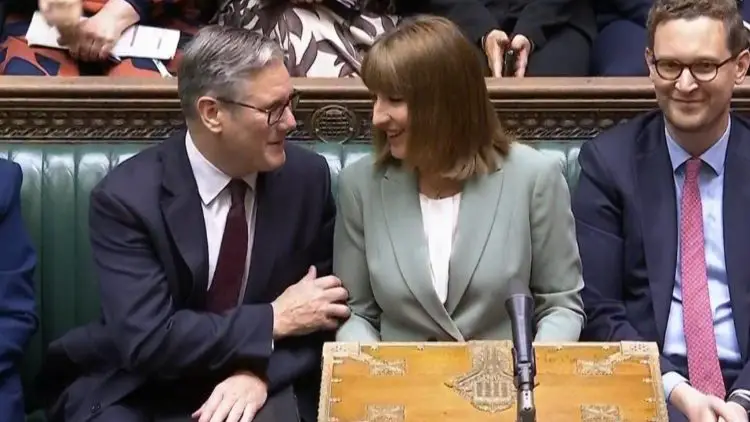Rachel Reeves has unveiled her three-year plan to reshape public spending – and it’s big. Really big.
In her first multi-year spending review as Chancellor, Reeves set out exactly how Labour plans to fund public services and rebuild the country without going back to austerity.
And while there were no tax announcements or borrowing plans (this wasn’t a full Budget), we still got plenty of headline-grabbing figures.
Here are the key takeaways 👇
🏥 1. Record NHS funding
Labour is ramping up day-to-day NHS spending by 3% above inflation every year – totalling an extra £29 billion per year.
On top of that, there’s £10bn in tech investment to drag the health service out of the analogue age, including a major upgrade to the NHS app.
🏨 2. Asylum hotel ban by 2029
Labour says the days of using taxpayer-funded hotels to house asylum seekers are numbered.
Reeves confirmed they’ll be scrapped by 2029. Meanwhile, the new Border Security Command will get up to £280 million a year to tackle small boat crossings.
🪖 3. Defence spending gets a big bump
Defence will see an extra £11bn in day-to-day funding, with spending rising from 2.3% to 2.6% of GDP by 2027.
The long-term goal? Hit 3% of GDP by 2034.
That’s partly being funded by slashing the UK’s overseas aid budget.
🏘️ 4. £39bn for social and affordable housing
Reeves has set aside £39bn between 2026 and 2036 to tackle the housing crisis – that’s £3.9bn a year, well above current levels.
She also promised £15.6bn for public transport improvements in English city regions (outside London) from 2027–2031.
🚌 5. £3 bus fare cap to stay until 2027
Labour is locking in the £3 cap on bus fares until at least March 2027.
The scheme builds on the £2 cap introduced by the Conservatives – although Labour has now raised the ceiling to £3.
🏫 6. Big boost for schools
Half a million more children will be eligible for free school meals if their parents receive benefits – at a cost of £1bn by 2029.
Teachers will get an extra £615m this year to help fund a 4% pay rise.
There’s also a £2.3bn yearly boost to fix “crumbling classrooms” and another £2.4bn a year to rebuild 500 schools.
👮 7. Police and justice funding rising too
Police budgets will rise by an average of 2.3% a year in real terms up to 2029.
The Ministry of Justice gets a slightly smaller boost, with a 1.8% annual rise in day-to-day funding.
⚠️ 8. But some departments lose out
The Home Office will take a 1.7% real-terms cut in day-to-day spending.
The Foreign Office fares even worse, with a 6.8% real-terms drop – mainly due to Labour’s earlier decision to shrink the overseas aid budget to just 0.3% of GDP by 2027.
😬 Critics say more is needed
The Lib Dems accused Reeves of neglecting social care. Treasury spokesperson Daisy Cooper warned:
“Putting more money into the NHS without fixing social care is like pouring water into a leaky bucket.”
Meanwhile, the National Institute of Economic and Social Research said the review still doesn’t go far enough on long-term investment.
Economist Ben Caswell said net public investment will stay at just 2.7% of GDP – “lower than in many other advanced economies”.
You may also like: Watch: Trump’s press secretary snaps at reporter over ‘stupid question’ on peaceful protests







